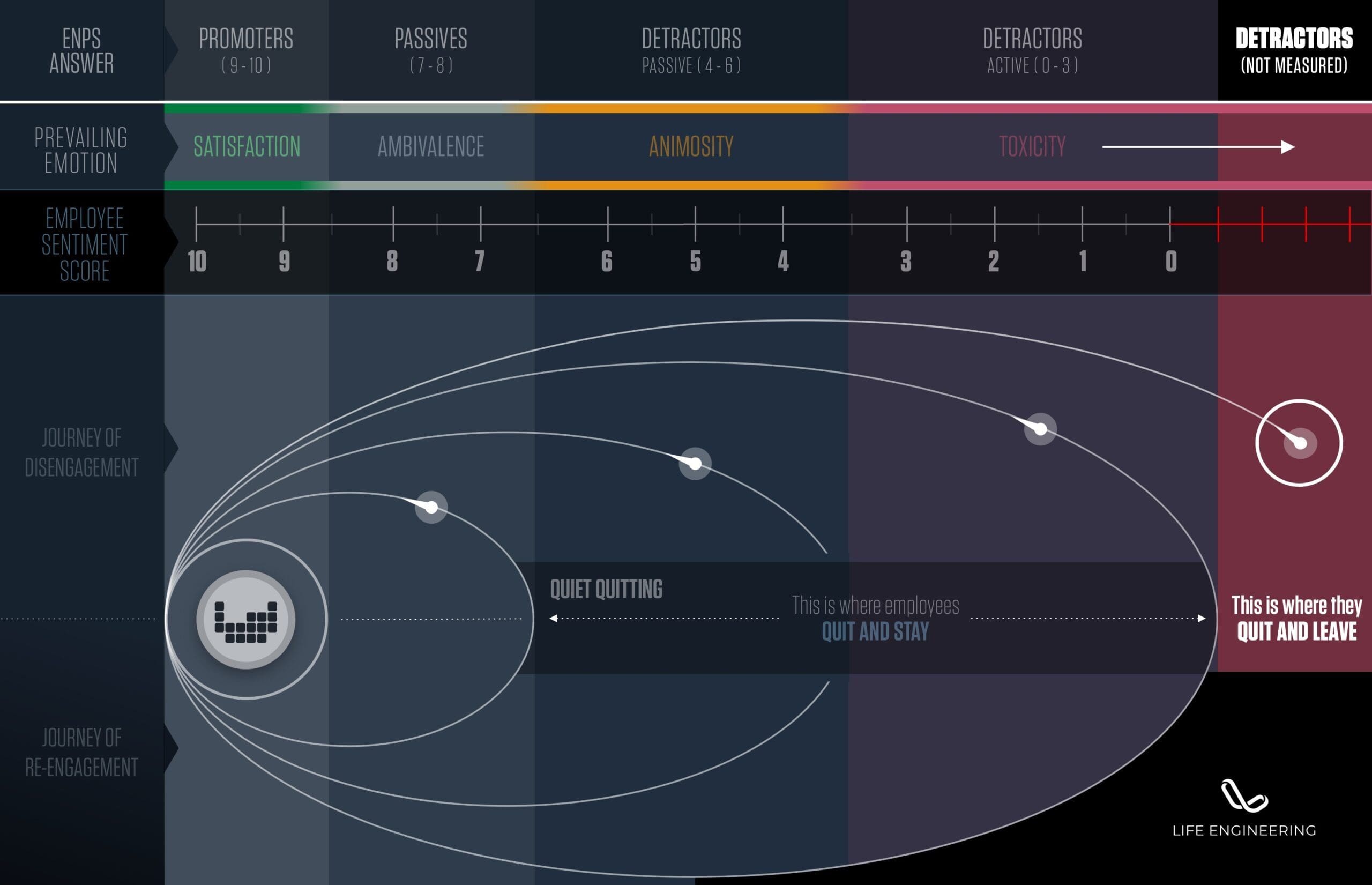Employee Sentiment (the combination of employee satisfaction and employee engagement) forms the entire emotional undercurrent that flows throughout your organization and affects its ability to function.
But it doesn’t just impact the individuals inside your organization, its impact extends to employee candidates and influences the general “market sentiment” about what it’s like to work at your organization… your Employer Brand.
employee sentiment and Employer Brand
This last category of “Quit and Leave” is worthy of a little extra attention, and is represented in our model.
Ordinarily an individual doesn’t just “all-of-a-sudden” pop into a category of discontent, no more than they pop into a category of disengagement.
The research shows that most of us begin in a state of satisfaction and engagement, at least when it’s something that we chose to engage in from the beginning. If things go wrong, we tend to drift outward along a spectrum of declining sentiment, in orbits of increasing animosity.
It’s important to note that when it comes to employee sentiment, your scores are obviously only catching those individuals who remain at your organization.
But there are those who quit and leave your organization, who are no longer measured.
If they quit and leave as “Active Detractors,” they will likely continue to “actively detract” from your organization, long after you lose the ability to measure for them in your ENPS and ESS surveys.

Think about it this way: Whatever disposition someone has toward your organization when they leave it will likely stay with them for a long time thereafter.
In fact, the psychology shows it will likely increase along the emotional trajectory it was on when they left the organization.
This is primarily due to the psychological phenomenon of assimilation bias and confirmation bias, which causes them to become emotionally and intellectually entrenched in the perspective they harbored upon departure.
What’s more, because of Recency Effect (a phenomenon that causes us to put a disproportionate amount of emphasis on memories that happened “last” or “most recently”), how someone leaves your organization is a critical component of managing what’s known as “Employer Brand.”
Employer Brand answers the question “what type of employer are you?” and can make a big impact on your ability to attract the right talent over time, especially since we live in the age of the socialization of everything, where everything you do so quickly becomes part of the broader social story about you.


Responses